The Perfect Temperature to Cook Eggs on the Stove
The Perfect Temperature to Cook Eggs on the Stove
Cooking eggs is an art that many people cherish. Fluffy scrambled eggs, perfectly fried sunny-side-ups, or soft-boiled eggs are delightful morning staples. However, achieving the ideal texture and flavor relies heavily on cooking temperature. What temperature to cook eggs on stove? Understanding the right temperature to cook eggs on the stove is essential for achieving culinary perfection.
The Science Behind Cooking Eggs
Eggs contain proteins that undergo changes when exposed to heat. What temperature to cook eggs on stove? These proteins coagulate, transforming from liquid to solid. The cooking temperature directly influences this process. Cooking eggs at too high a temperature can result in rubbery textures. Conversely, low temperatures can lead to undercooked eggs. Thus, knowing the right temperature ensures that eggs retain their delicious flavor and texture.
Each type of egg dish requires a different approach. For instance, scrambled eggs thrive at lower temperatures, ideally between 150°F and 160°F. Cooking them slowly allows for even cooking and avoids the dreaded rubbery texture. Low and slow cooking ensures that the eggs remain soft and creamy. Adjusting the temperature is crucial for achieving this result.
Meanwhile, fried eggs benefit from higher temperatures, typically around 160°F to 180°F. Cooking at this range creates crispy edges while maintaining a soft yolk. It’s essential to preheat the pan adequately to achieve this desired outcome. A well-heated surface helps in cooking the egg evenly. Skipping this step can lead to uneven cooking and disappointing results.
Soft-boiled eggs, on the other hand, require a precise approach. The suggested temperature for soft-boiling is about 185°F. At this temperature, the egg whites set beautifully while the yolk remains creamy. Timing is also critical; cooking for about six to seven minutes achieves the ideal consistency. Monitoring the temperature and timing is key to mastering soft-boiled eggs.
Hard-boiled eggs, in contrast, need a different strategy. They should be cooked at a rolling boil, ideally around 212°F. Bringing the water to a boil, then simmering gently allows for thorough cooking without overdoing it. The goal is to have a firm white and a crumbly yolk. Overcooking results in a grayish-green ring around the yolk, an unpleasant visual cue.
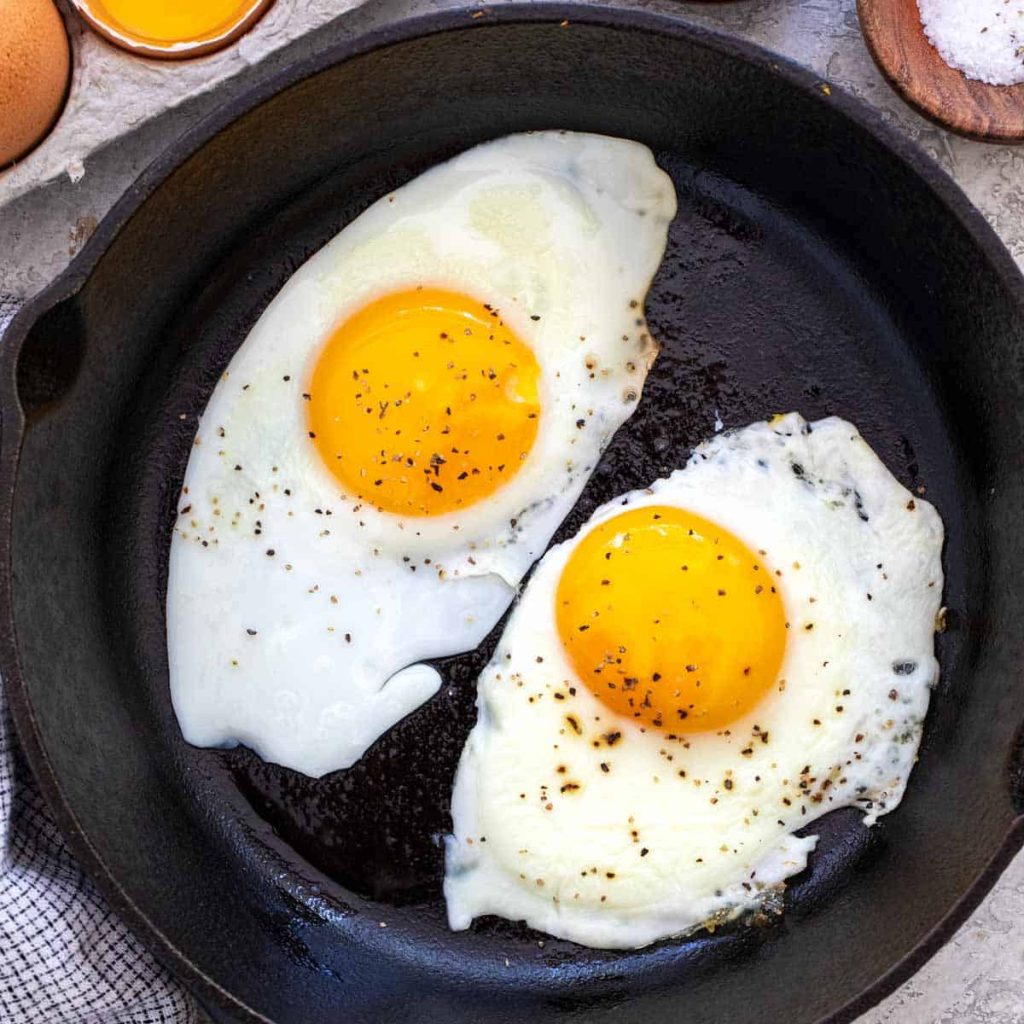
Cooking Techniques for Different Egg Dishes
Each cooking technique affects the ultimate texture and flavor of eggs. For scrambled eggs, starting with cold ingredients works wonders. What temperature to cook eggs on stove? Adding milk or cream to raw eggs enhances richness and flavor. After whisking, pour the mixture into a preheated non-stick skillet over low heat. Stir gently and continuously to ensure even cooking throughout. This method encourages delicate curds and a luscious result. It’s about patience, ensuring the heat is consistently low.
For frying eggs, breaking the eggs into a hot skillet produces sizzling sounds. This sound indicates the pan is at the right temperature. Ensure to use a non-stick pan for easy flipping. Whether sunny-side-up or over-easy, the key is to control the heat carefully. Cook until the whites are set yet the yolk remains runny for delectable results.
Omelets deserve attention, requiring a blend of cooking techniques. Whisk eggs until fluffy, then pour into the pan over medium heat. Allow the mixture to set gradually. Gentle folding of the edges helps cook the omelet evenly. Adding ingredients before complete setting ensures everything melds perfectly. A well-executed omelet brings joy to any meal.
Poaching eggs involves simmering water rather than direct heat. Bring a pot of water to around 180°F and add a splash of vinegar. Vinegar helps protein coagulation, resulting in a beautifully shaped egg. Gently slide the egg into the simmering water and cover for about four minutes. The result is a tender egg white enveloping the creamy yolk, creating a perfect addition to various dishes.
Deviled eggs offer a fun and delicious alternative. Boil eggs until hard, then cool them quickly in ice water. Cooling halts the cooking process, ensuring perfect yolks without an overpowering flavor. Carefully remove the shell, slice, and mix yolks with mayonnaise and seasoning. The result is a delightful treat that showcases the egg’s creamy texture.
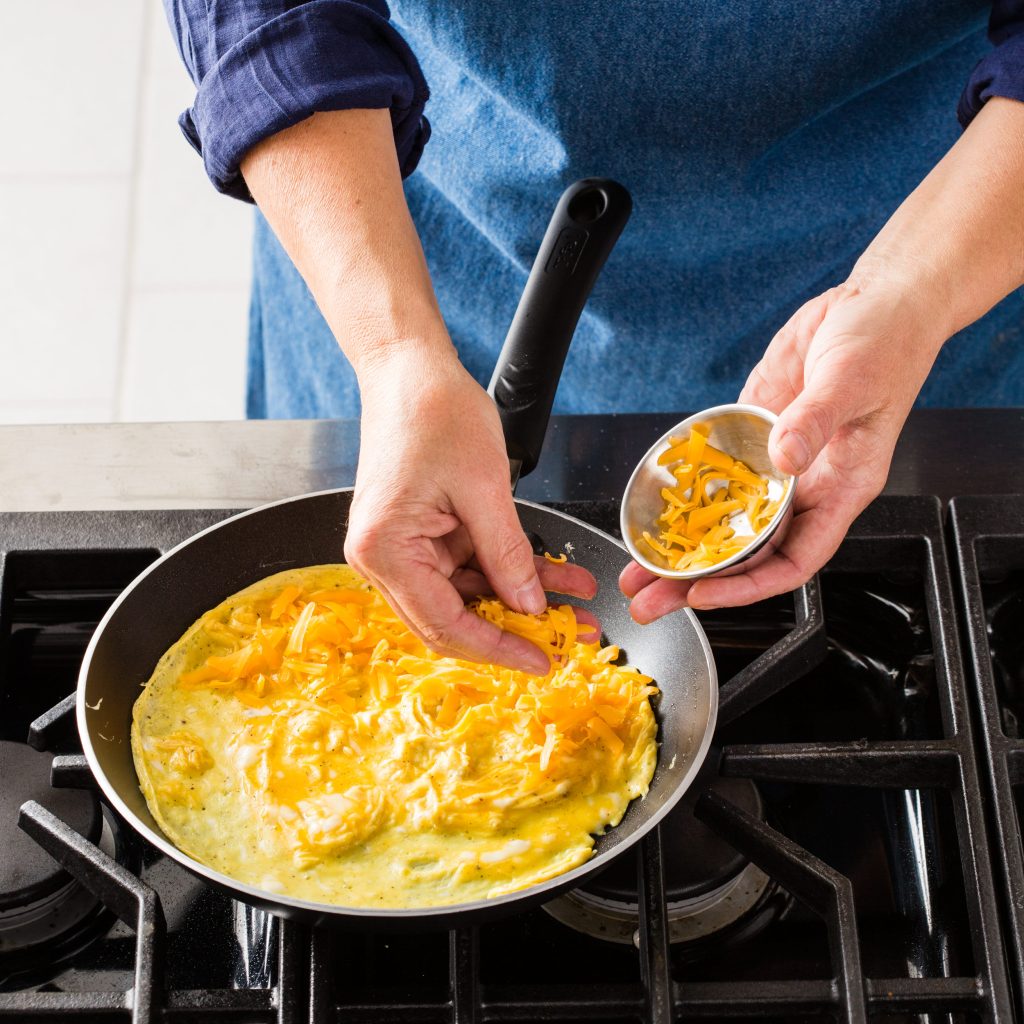
Best Practices for Cooking Eggs
Adopting best practices enhances the egg cooking experience. Always use fresh eggs for the best flavor and texture. Fresh eggs have firm whites and brighter yolks. When eggs are fresher, they cook better and maintain their shape. Older eggs may spread more, resulting in less appealing presentations. Prioritize quality to elevate each dish.
Furthermore, investing in a reliable non-stick skillet is crucial. A properly seasoned non-stick pan prevents sticking, ensuring easy flips and transfers. Using a gentle touch while cooking allows for better control over the final product. Non-stick surfaces reduce the need for excessive oil or butter, promoting healthier options.
Temperature control cannot be overstated. A food thermometer can offer precise readings, especially for delicate preparations. Knowing when the oil in the pan is hot enough before adding eggs can mitigate cooking issues. Using low and moderate heat fosters a gradual cooking process, enhancing flavor. The goal is to keep the eggs tender and flavorful while avoiding charring.
Servings should also not be neglected. Cooking eggs in smaller batches allows for better control. Overcrowding a pan may result in uneven cooking, leading to some eggs being overdone. Taste and visual appeal are essential components of a successful dish. Thus, focusing on small quantities fosters attention to detail.
Ultimately, timing is everything. Setting a timer for cooking eggs, especially hard-boiled versions, ensures precision. Forgetting about simmering eggs can lead to disappointing results. Keeping an eye on the clock makes it easier to achieve the desired doneness. Cooking eggs perfectly requires attention to detail in timing and temperature.
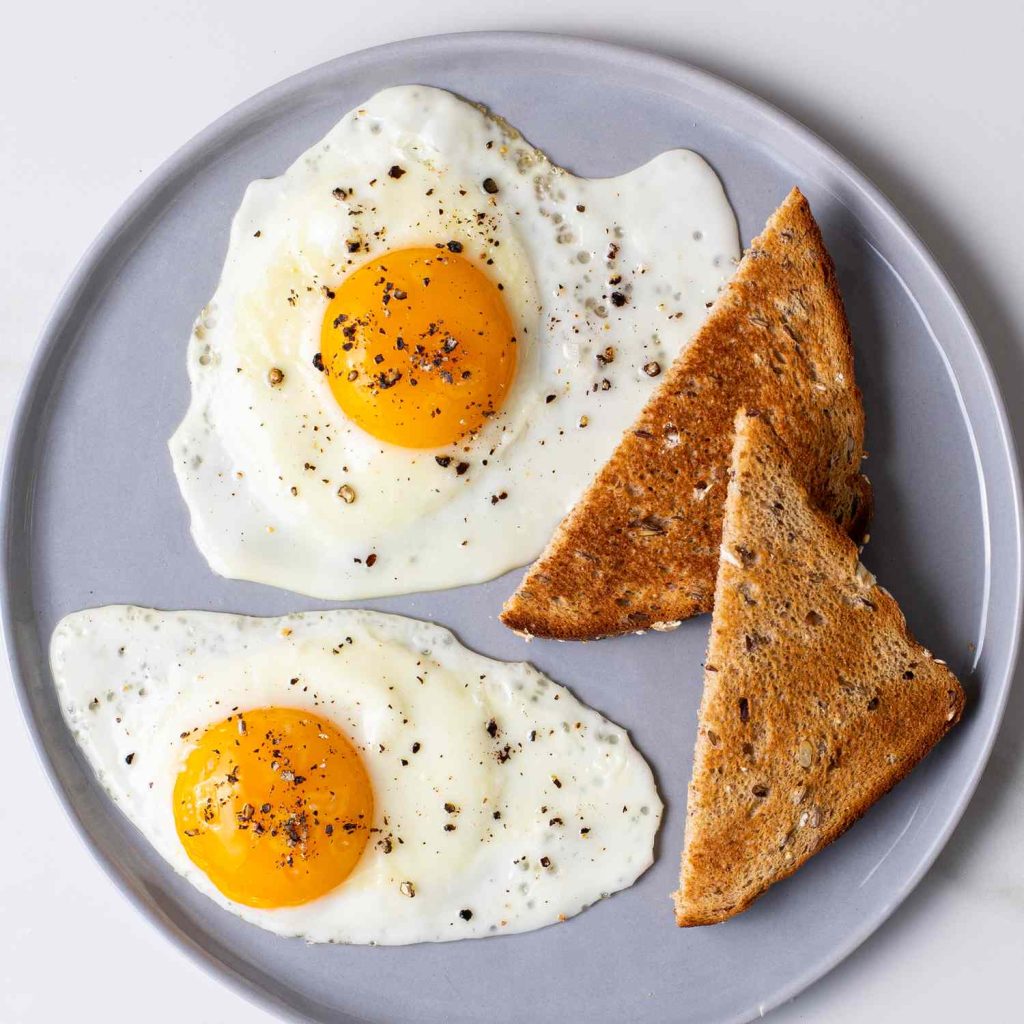
Adding Flavor and Variety
Enhancing egg dishes with various flavors improves overall enjoyment. What temperature to cook eggs on stove? Simple additions like herbs and spices can transform a basic dish. Fresh chives, parsley, and dill can emphasize the natural flavors of eggs. Adding cheese can also elevate scrambled eggs or omelets. Delicious varieties are endless with creative ingredient pairings.
Sautéing vegetables before adding them to egg mixtures creates hearty and nutritious meals. Bell peppers, onions, and spinach are excellent for adding color and nutrition. Blending different ingredients adds richness to the dish. Experimenting with flavors encourages culinary exploration and satisfaction.
Consider adding proteins such as ham, bacon, or smoked salmon. These additions can provide a delightful contrast to the egg’s soft texture. Each ingredient invites unique flavors, creating exciting culinary experiences. Omitting or substituting certain components also accommodates dietary preferences, enhancing overall enjoyment.
Sauces can also be added to cooked eggs, providing another dimension of flavor. Smooth hollandaise or zesty salsa can brighten a plate of eggs. A little drizzle of chili oil can liven up simple scrambled eggs. These enhancements ensure each meal feels special, turning an everyday dish into a gourmet experience.
Incorporate international flavors for an adventurous twist. For example, using spices like curry powder or paprika can transform traditional eggs. Combining cultural elements broadens the culinary palette. Incorporating flavors from around the world promotes creativity and joy. Each dish becomes an exciting journey for the palate.
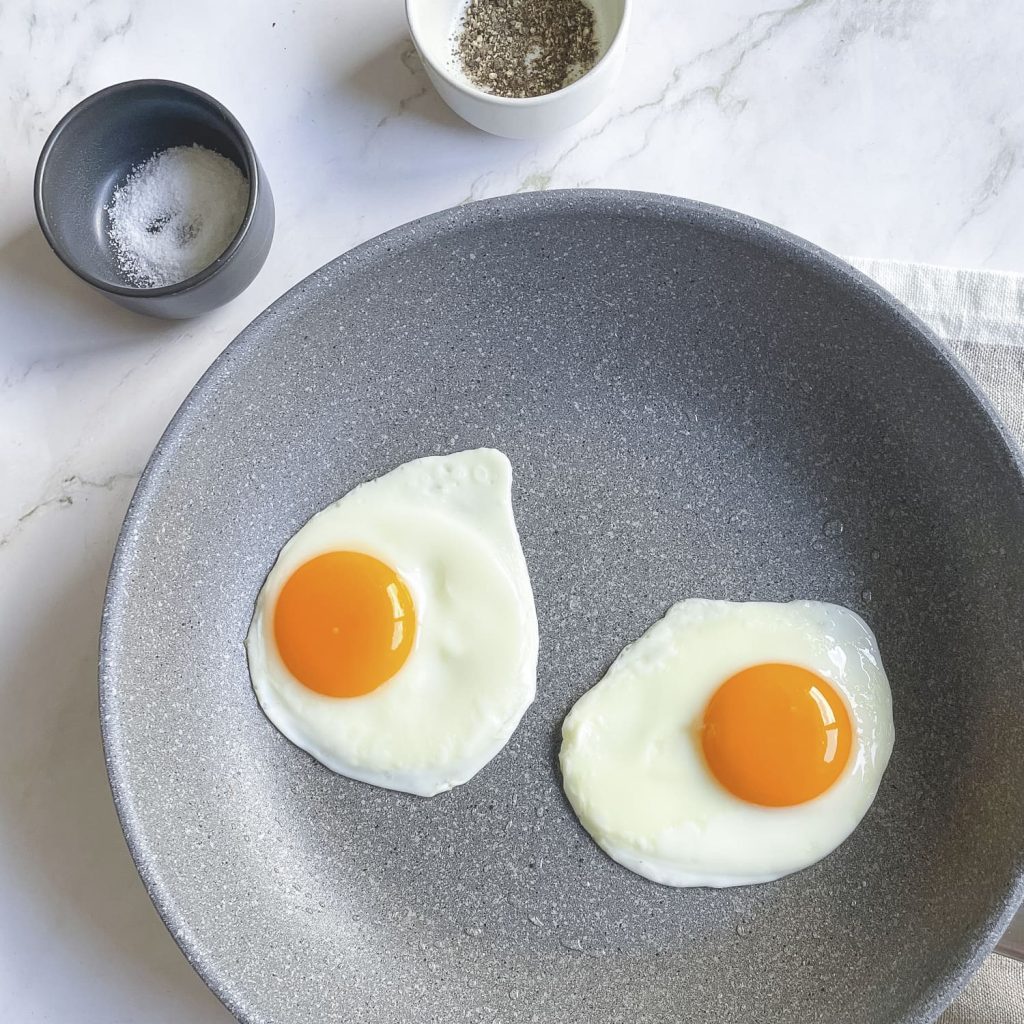
Troubleshooting Common Egg Cooking Issues
Common cooking issues may arise during egg preparation. Undercooked eggs can happen due to low heat or improper timing. They can be brought back to heat, but the texture may suffer. Breaking the egg into a hot pan helps avoid this issue. What temperature to cook eggs on stove? Always use accurate temperature checks to avoid undercooking.
Conversely, overcooked eggs can result in dry and rubbery textures. Cooking at high temperatures or for too long exacerbates this issue. Knowing when to remove eggs from heat is crucial. Regular checks during cooking can prevent unwanted results. Adjusting timing based on individual stove performance helps prevent errors.
Egg sticking to pans is another common dilemma. Using enough fat, such as butter or oil, mitigates this problem. Preheating the pan correctly also aids in achieving a non-stick surface. Consider using non-stick spray for eggs cooked in standard pans. Each of these steps helps facilitate a smoother cooking experience.
Color variations can sometimes be a concern. Cooked eggs with uneven colors may indicate uneven heat distribution. Monitoring the stove and adjusting heat levels ensures even cooking. A gentle hand while flipping can help control the presentation as well.
Lastly, cracked eggs can occur during boiling or poaching. This can lead to a messy outcome. Adding a pinch of salt to the boiling water can help minimize cracks. If poaching, practice gentle sliding of eggs into water to avoid damage.
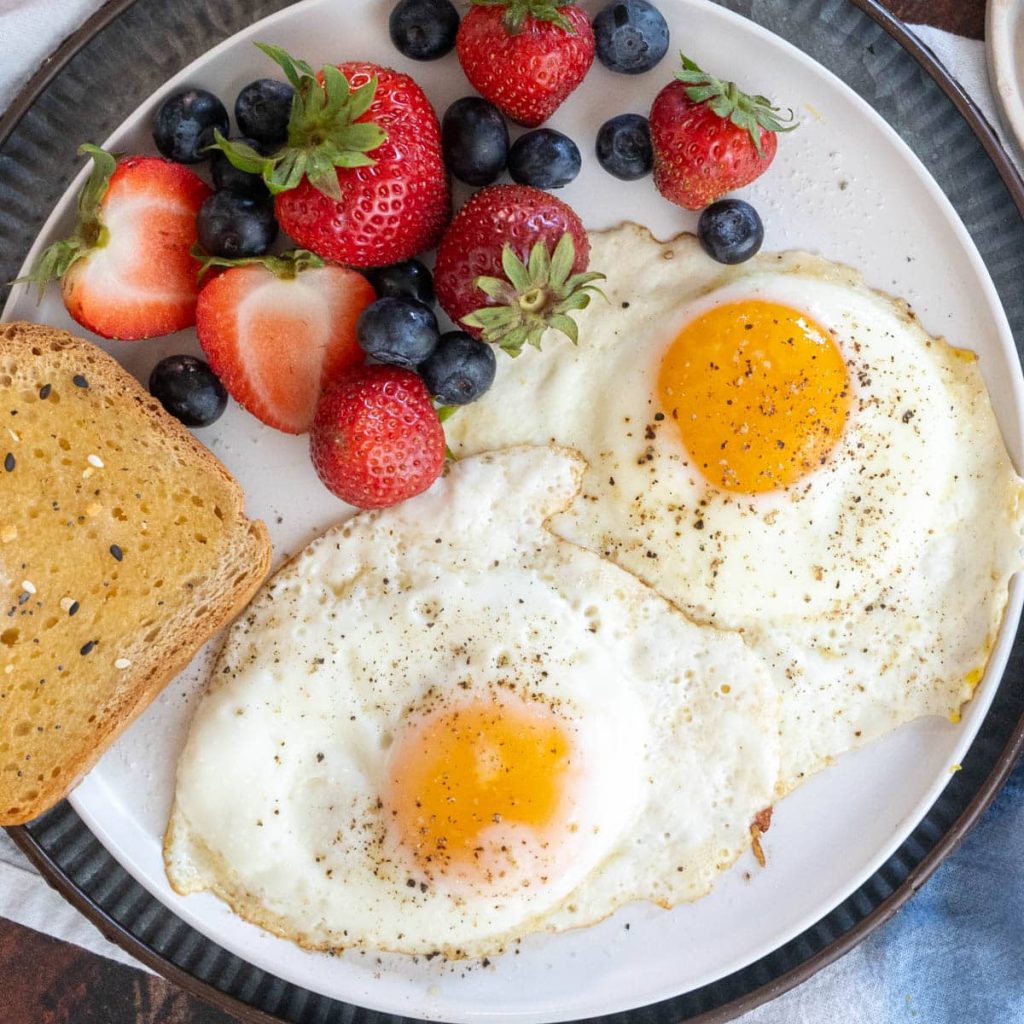
The Joy of Eating Perfectly Cooked Eggs
The satisfaction of perfectly cooked eggs is truly unparalleled. Each dish, when executed well, showcases the versatility of eggs. Breakfast, lunch, or dinner—eggs can delight at any meal. They serve as a canvas for creativity, allowing cooks to experiment with different styles and flavors.
Sharing these egg dishes with family and friends fosters a sense of connection. A brunch featuring various egg dishes allows for communal enjoyment. Creating a spread with several options provides guests with choices. This not only satisfies different palates but also encourages discussions around food.
Moreover, eggs are nutrient-rich, offering protein, vitamins, and minerals. They are essential ingredients in many culinary traditions worldwide. Their accessibility makes them a go-to food for many. With countless recipes available, there’s always something new to try.
The impact of learning how to cook eggs perfectly is significant. This skill contributes to a well-rounded culinary repertoire. With each cooking attempt, greater confidence and skill in the kitchen develops. Mastering egg dishes opens doors to many meal possibilities.
Ultimately, perfectly cooked eggs promote both health and happiness. Understanding the right temperature to cook eggs on the stove unlocks a world of flavors. Mastery of this simple yet profound technique invites countless culinary adventures.
Celebrating the beauty of well-cooked eggs elevates culinary experiences. It reminds everyone of the joy that comes from simple foods. Eggs, when treated with care, bring delight to even the most mundane meals. Enjoying eggs can truly be a delightful experience for all.
In conclusion, the nuances of cooking eggs deserve attention. Knowing the right temperatures and techniques enhances the overall experience. Each dish can be an opportunity for culinary exploration and creativity. Embrace the versatility of eggs and enjoy the delicious journey they offer.
